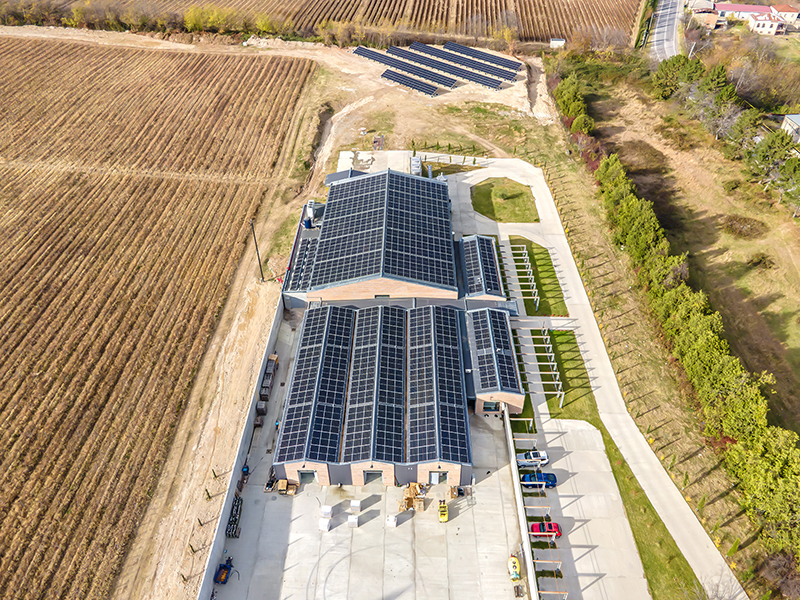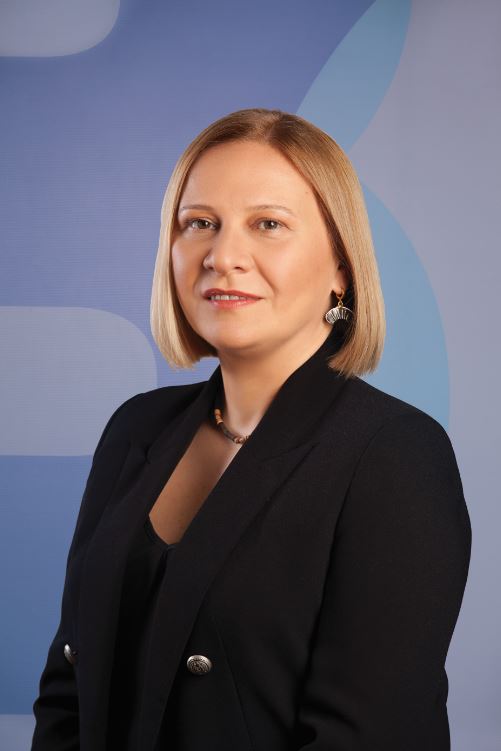Sustainable Practices of Bank of Georgia
Bank of Georgia has recently revised its ESG Strategy for the upcoming years. This update is based on an analysis of international financial institutions, rating agencies, international best practice, and an ESG Materiality Assessment.
In formulating the ESG strategy, a key consideration for Bank of Georgia was to actively engage with its stakeholders. This involved understanding their priorities and expectations from the bank. To achieve this, the bank, with the support of its partner financial institution – Global Climate Partnership Fund (GCPF), conducted an ESG materiality assessment, encompassing the interviews with investors, partner international financial institutions, customers, and employees. The insights gathered from these stakeholders, coupled with the research analysis, have informed the updates to the ESG Strategy.

Starting in 2024, Bank of Georgia’s ESG strategy will concentrate on four main pillars: Governance and Integrity, Financial Inclusion, Sustainable Finance, and Employee Empowerment. Ana Osadze, the Head of ESG and Sustainability, provides insights into the bank’s sustainability strategy.
Could you share the details about the financial products and services designed with social and environmental criteria in mind? How does Bank of Georgia integrate ESG principles into its business operations, and what measures are in place to address the environmental and climate change challenges?
Bank of Georgia’s ESG strategy is an integral part of its overall business strategy, reflecting complete integration into the bank’s core processes. A key focus area within the strategy is sustainable financing and emphasizing the development of new, environmentally friendly, energy-efficient, and climate-smart products. This approach serves as a robust mechanism for environmental protection and is a proactive response to the challenges posed by the climate change. Moreover, the bank has established a robust environmental and social risk management system, enabling effective risk management related to the financial resources and assisting customers in steering clear of adverse financial, environmental, and social impacts.
Five Georgian banks provide loans according to sustainable taxonomy, what are the main challenges in this direction?
I would like to emphasize that the National Bank’s development of the sustainable taxonomy marks a significant stride toward a sustainable economy and future. At Bank of Georgia, we are committed to maximizing our provision of green financing and diligently reporting to our regulator. As our legal framework continually evolves, the National Bank of Georgia’s sustainable taxonomy has, in some aspects, surpassed our existing legal framework, introducing the requirements that businesses presently lack. While this presents some minor challenges, it is expected that these gaps will naturally be addressed over time, and the associated challenges will be successfully overcome.
As far as we are aware, sustainable procurement principles have been introduced in Bank of Georgia, what are the challenges related to the implementation of these principles?
Certainly, as an organization upholding high ethical standards and concurrently being one of the largest market buyers, we place significant emphasis on the identity and values of our suppliers. To ensure ethical practices, our organization has established a Supplier Code of Conduct, which has received approval from the Supervisory Board of Bank of Georgia Group PLC. This Code delineates the minimum standards and requirements essential for engaging in business with our suppliers. It encompasses crucial principles such as the respect for human rights, the prohibition of forced and child labor, prevention of discrimination and harassment, commitment to diversity and inclusion, considerations for health and safety, environmental sustainability, adherence to circular economy principles, prohibition of corruption and bribery, information security, risk management, transparency, and reporting. It is noteworthy that we conduct due diligence and assessments of our suppliers. While managing a considerable number of suppliers, we handle data collection efficiently, and although the process involves a substantial volume, it doesn’t pose any unique challenges that we find insurmountable.
What are the benefits of introducing sustainable practices directly to SMEs?
In today’s dynamic business landscape, the adoption of sustainable practices is not a matter of debate but a crucial factor for the enduring success of businesses, whether they are SMEs or large corporations. Dispelling the notion that sustainability inherently increases business costs, current research consistently indicates that the companies with robust sustainability practices are not only more profitable but also exhibit long-term sustainability. Embracing sustainable practices brings about substantial advantages, including risk mitigation, heightened competitiveness, alignment with customer expectations, and more. It is evident that the integration of sustainable practices is highly advantageous for businesses.
Are environmental and other risks related to sustainable development considered in today’s business evaluations?
At Bank of Georgia, our practice of assessing environmental and social risks dates back to 2012. Continual improvements are being made, and our approaches are adapting accordingly. Presently, environmental and social risks are integrated into our risk framework, playing a crucial role alongside with the financial risks in our business lending processes.
Why is the development of sustainable financing important for the country and society? And what impact will it have on the development of the investment climate?
The advancement of sustainable financing in the country is directly tied to risk reduction, climate change mitigation, and the enhancement of social conditions. It contributes significantly to the country’s shift towards a sustainable economy, fostering sustainability and stability, which, in turn, positively influences the society, the nation, and the overall investment climate.

Why is it important to support financial education, and what is the role of the private sector in this process? What is Bank of Georgia doing in this direction? How should the promotion of financial education, including sustainable financing, be activated both in financial institutions and in society?
Bank of Georgia places significant emphasis on supporting financial education as a priority initiative. Throughout the year, we have executed numerous projects, engaging with up to 10,000 students.
In collaboration with our partners, we initiated the inaugural Olympiad in Economics and Financial Education (GELi & USAID). Additionally, for the first time, we integrated a financial education component into sCoolapp, the first app for students to cultivate sound financial habits from an early age. sCoolapp features elements of financial education to assist students in comprehending the importance of financial management, fostering economic thinking, and independently planning their budgets.
Instilling theoretical knowledge and honing skills at an early age equips students to make responsible decisions in the future. We anticipate that this will positively impact the economic well-being of both the country and the society.
How significant is multi-sectoral cooperation between financial institutions, development banks, and the civil sector to facilitate the development of sustainable financing in Georgia?
Undoubtedly, commercial banks, or financial institutions, play a pivotal and leading role in advancing sustainable financing. However, the contribution of development banks is equally vital, serving as policy influencers in steering financing towards sustainability. Regarding the civil sector, I perceive their role primarily in raising awareness and endorsing ESG activities. Despite sustainability being a globally active topic, it remains relatively new, and there is a shortage of information, as well as the professionals, in this domain.




 Search
Search





